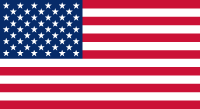
Some games are so ingrained in popular culture that people never stop to think about how they came to be. Billiards is one of those games.
Many of us grew up with a pool hall down the street and a table in our neighbor’s basement. You might have a relative who loves to play billiards, and you’ve probably seen the game depicted in various forms of media. Consequently, you may have never questioned where it came from.
However, if you become curious about billiards' history and start looking into it, you’ll discover that the game has a remarkable story to tell. Billiards stretches back through the centuries and has been a part of life for many different societies and classes of people.
It would be difficult to share the history of pool without writing an entire book on it, but even a brief introduction will no doubt prove fascinating to curious fans of the game.
When Was Pool Invented?
Believe it or not, the history of pool extends back to 14th-century France.
It wasn’t originally played indoors on a table but outdoors on a lawn, similar to croquet. That’s likely why the felt on a pool table is often green — when the game originally moved indoors, players attempted to simulate the grass they were used to playing on.
In its original form, billiards didn’t involve cues. Instead, a mace was used to push the balls toward their destinations. The name “billiard” is an English transformation of the French word “billiart,” which is the original term for those maces. “Billiart,” in turn, appears to be derived from the French word for ball, “bille.”
Who Invented Pool?
The earliest era of the game is fairly murky, as it wasn’t well recorded, meaning no one really knows who the original inventor of billiards was. However, over the next hundred years or so, the game exploded in popularity so much that it became fashionable for Northern European nobility to play it, resulting in a far clearer history from then on.
When Was the Pool Table Invented?
The invention of the pool table marks an important moment in the history of billiards. With it, the game went from one played outside on nice days to one that could be enjoyed indoors in all weather.
However, it’s not completely clear when the first pool table was made or who was responsible for dreaming it up. What we do know is that the oldest tables had flat rails, which made it almost impossible for someone holding a mace to get off a good shot.
At some point in the late 1600s, players got sick of this handicap and decided it would be much better to strike the ball rather than shove it. Thus, the billiard cue was invented.
For many years, pool tables were made of wood, which made them strong but not altogether durable. That’s why slate would eventually come to be used; it remains the most popular material for pool tables to this day.
By the mid-1800s, the felt-covered rails that surround a standard pool table had taken the place of the original flat ones. Those flat rails supposedly resembled a riverbank, which is why sending a ball careening off of one is known as a “bank” shot.
Why Is Pool Called Pool?
You now know that billiards is an anglicized version of a word derived from the French term for “ball,” but where exactly does the name “pool” come from?
In this case, a pool isn’t a man-made body of water designed for relaxation but rather a group of bets placed on a game or sporting event.
Betting on billiards is as old as the game itself, but pool didn’t acquire its name until it had become a favorite pastime of American gamblers in the mid-1800s.
The “pool room” in 19th-century America was a place where adventurous gamblers placed high-stakes bets on horse races. These rooms also featured additional entertainment in the form of billiards tables installed to occupy bettors between races.
Over time, the lines between the name of the room and the game played in it were blurred enough that billiards became known as “pool" to the average American.
Who Invented Eight Ball?
There have been many iterations of billiards throughout the game’s extensive history. Often, the main distinction between different versions involves the number of balls and pockets. While more than one of those versions is still played today, by far the most popular is eight ball.
This version of pool got its start in America around 1900. It involves two players competing to see who can be the first to pocket all seven of their balls and the eight ball before their opponent.
This version of pool has become so popular that there are whole professional leagues devoted to it. These leagues hold international tournaments and are overseen by an international governing body (the World Pool-Billiard Association) that determines the standard rules of professional play.
The Story Continues
While many games out there get more media coverage and fanfare, few can match up to the long, storied history of billiards.
Whenever you play pool, you’re taking part in a tradition shared by commoners, kings, nobles, celebrities, families, friends, gamblers, barroom buddies, professional competitors, and countless others throughout the centuries. That’s part of what makes the game so timeless.
So grab a cue, rack ‘em up, take your best shot, and become an active participant in the history of this perennial pastime.







 Shop now. Pay over time with affirm
Shop now. Pay over time with affirm